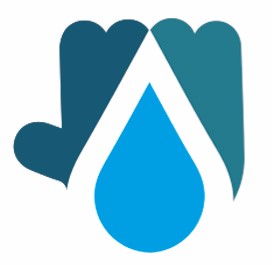- When should I clean my hands at work?
- When should I choose soap over sanitiser?
- How should I wash my hands with soap?
- Can I just use water to clean my hands?
- Do I need to dry my hands?
- What can I do about chapped hands?
Why is hand hygiene at work important?
Hand hygiene is important because it can improve your health, as well as the health of your colleagues, customers and all those you come into contact with at work. Hand hygiene at work can also reduce the risk of spreading infections to those you meet after work including your family. According to the Centers for Disease Control (CDC) hand hygiene is one of the most important ways to prevent germs from spreading at work.
When should I clean my hands at work?
Centers for Disease Control (CDC) recommend that when at work you should clean your hands:
- before arriving and after leaving the workplace
- before and after breaks
- after blowing your nose, coughing, or sneezing
- after using the toilet
- before eating or preparing food.
If you are a healthcare worker or work in the food industry there will be additional times when you will be required to clean your hands. Healthcare workers should follow the World Health Organisation’s (WHO) 5 moments of hand hygiene, and clean their hands:
- before touching a patient
- immediately before performing a clean/aseptic procedure
- immediately after an exposure risk to body fluids (and after glove removal)
- after touching a patient and her/his immediate surroundings
- after touching any object or furniture in the patient’s immediate surroundings.
The UK Food Standards Agency require that all those working with food should wash their hands and dry them on a disposable towel:
- when in the kitchen or preparation area
- before preparing food
- after touching raw food
- after handling food waste or emptying a bin
- after cleaning
- after blowing their nose
- after touching phones, light switches, door handles and cash registers.
They also recommend that taps should be turned off with a disposable towel.
When should I choose soap over sanitiser?
Hand sanitisers are not effective at removing visible dirt, harmful chemicals and some infections. If your hands are visibly dirty you should use soap and water instead of hand sanitiser. Centers for Disease Control (CDC) also recommend health care workers use soap and water after caring for a person with known or suspected infectious diarrhoea and after known or suspected exposure to spores such as B. anthracis and C difficile.
How should I wash my hands with soap?
It is important to wet your hands, apply soap, thoroughly rub your hands together, rinse and dry your hands. This should take about 40 seconds. It is a good idea to remove jewellery before washing your hands. See this detailed step-by-step guidance and video from the National Health Service (NHS).
Can I just use water to clean my hands?
You should use both soap and water to clean your hands. Using soap helps to remove germs more effectively than water alone. Soap breaks down the fat and dirt on your skin. Rubbing hands together creates friction that further helps to remove germs. Water washes germs away.
Do I need to dry my hands?
Drying hands helps to further remove germs. Additionally, germs spread more easily on wet hands than dry hands. For more information on hand drying read this article The Hygienic Efficacy of Different Hand-Drying Methods: A Review of the Evidence.
What can I do about chapped hands?
If you have dry hands the American Academy of Dermatology Association recommends applying cream or ointment immediately after washing and/or sanitising your hands.
If you work in healthcare or the food industry check with your employer if there are any restrictions on what creams and ointments you can use.
